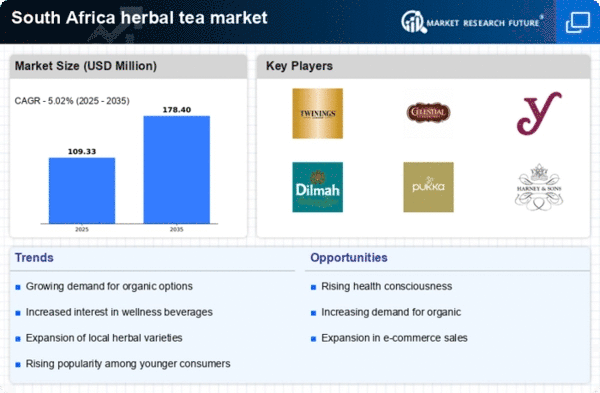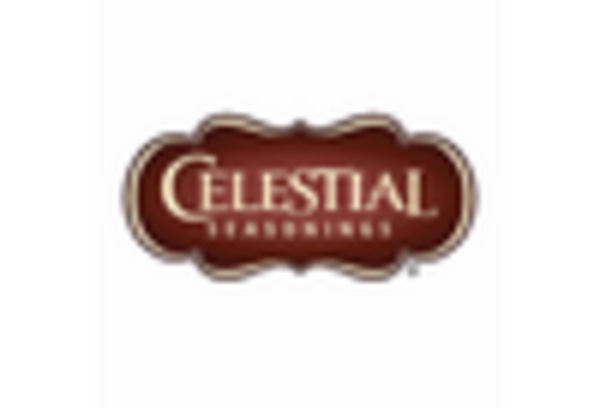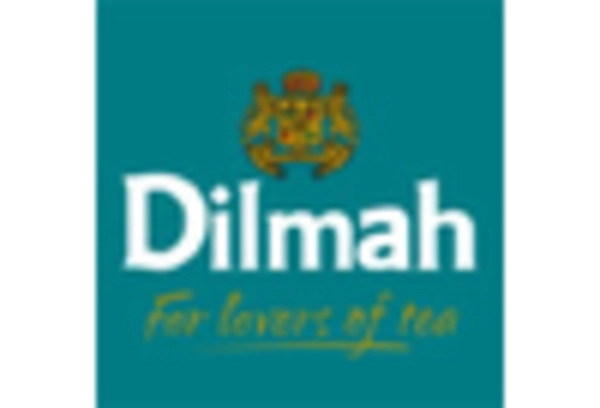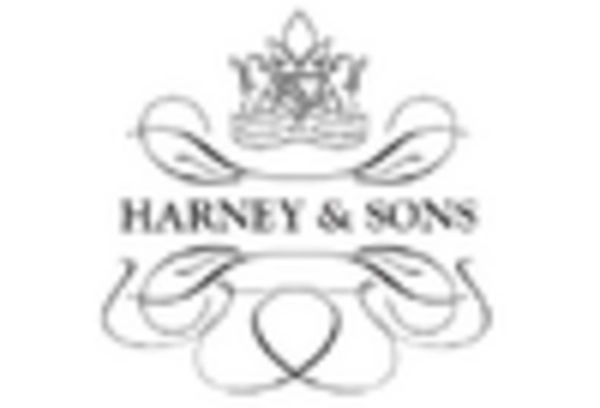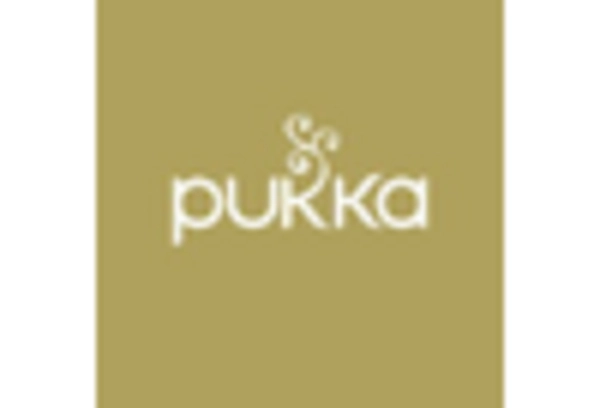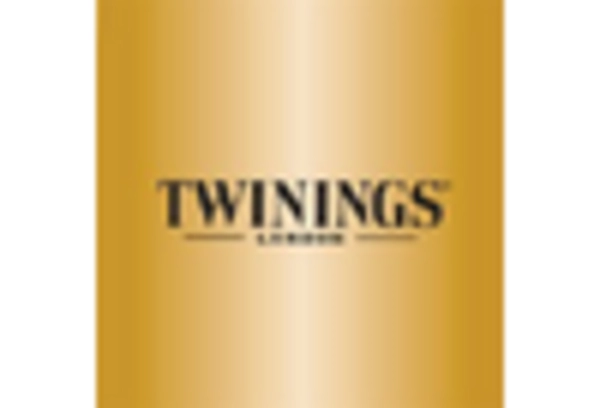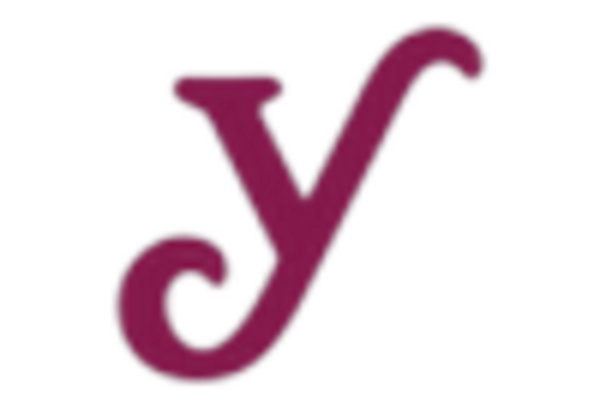Rising Health Consciousness
The increasing awareness of health and wellness among consumers in South Africa appears to be a primary driver for the herbal tea market. As individuals seek natural alternatives to traditional beverages, the demand for herbal teas, known for their potential health benefits, is likely to rise. According to recent data, the herbal tea market has experienced a growth rate of approximately 8% annually in South Africa. This trend suggests that consumers are gravitating towards products that promote well-being, such as those rich in antioxidants and vitamins. The herbal tea market is thus positioned to benefit from this shift, as more people incorporate herbal teas into their daily routines, seeking to enhance their overall health and lifestyle.
Innovative Marketing Strategies
The herbal tea market in South Africa is witnessing a transformation due to innovative marketing strategies employed by brands. Companies are increasingly leveraging social media and influencer partnerships to reach younger demographics, who are more inclined to explore new beverage options. This approach not only enhances brand visibility but also fosters a community around herbal tea consumption. As a result, the market is likely to see an influx of new consumers, particularly millennials and Gen Z, who prioritize experiences and lifestyle choices. The effectiveness of these marketing strategies may lead to a notable increase in sales, as brands successfully engage with a broader audience and create a buzz around their herbal tea offerings.
Cultural Preferences and Traditions
Cultural influences play a significant role in shaping consumer preferences in South Africa, particularly regarding beverages. Herbal teas, often rooted in traditional practices, resonate with many consumers who value their heritage. The herbal tea market is likely to thrive as these cultural connections encourage the consumption of herbal infusions, which are often associated with rituals and social gatherings. Furthermore, the diverse range of flavors and ingredients used in herbal teas reflects the rich cultural tapestry of South Africa, appealing to a broad audience. This cultural affinity for herbal teas may contribute to a sustained increase in market demand, as consumers seek products that align with their identities and traditions.
Sustainability and Ethical Sourcing
Sustainability has emerged as a crucial consideration for consumers in South Africa, influencing their purchasing decisions in the herbal tea market. As awareness of environmental issues grows, consumers are increasingly seeking products that are ethically sourced and produced. The herbal tea market is likely to benefit from this trend, as brands that prioritize sustainable practices may gain a competitive edge. This includes sourcing ingredients from local farmers and ensuring fair trade practices, which resonate with socially conscious consumers. Recent surveys indicate that approximately 70% of South African consumers are willing to pay a premium for products that align with their values, suggesting a strong market potential for sustainably produced herbal teas.
Growing Interest in Natural Ingredients
The trend towards natural and organic products is becoming increasingly pronounced in South Africa, influencing the herbal tea market. Consumers are increasingly wary of artificial additives and are opting for beverages that are perceived as pure and wholesome. This shift is evident in the rising sales of herbal teas, which are often marketed as free from synthetic ingredients. The herbal tea market is likely to benefit from this growing preference, as brands that emphasize natural sourcing and organic certifications may attract a larger customer base. Recent statistics indicate that the organic beverage segment, including herbal teas, has seen a growth of around 12% in South Africa, highlighting the potential for further expansion in this sector.


